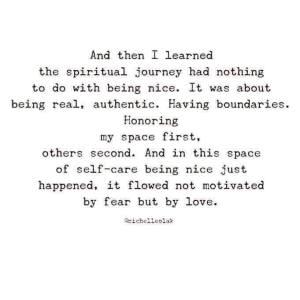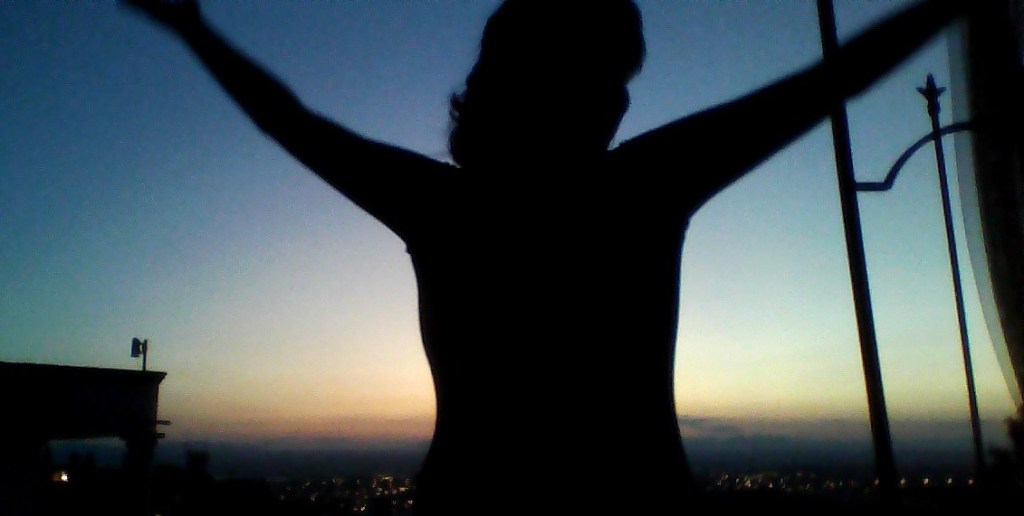
Love is not about losing freedom; it’s about sharing freedom with a partner who’s as talented a liberationist as you
~ Rob Brezsny’s Free Will Astrology
This post has been hard for me to write. Indeed, it’s been hard for me to write anything for Polysingleish of late — a combination of focusing my writing energy elsewhere, and also feeling like I didn’t have more to contribute here.
I started this blog because I didn’t have anyone to guide me when I began my journey in consensual non-monogamy. There was no guide for being polyamorous while in a primary relationship with one’s own self.
Naturally, I stumbled. I messed up. I slowly figured out (sometimes through trial and error) what it meant to be polyamorous without a primary and without being on the relationship escalator.
This blog has been around for over 8 years now— and over the course of those 8 years, my words have landed with thousands of other folks who have been exploring relationships in a similar way. It has been an incredible honor, and so very humbling to receive feedback — from both friends and strangers alike — who say I’ve articulated something that they’ve always felt but thought they were alone in their experience.
I want to stay in integrity with all of you who have read and followed this blog through the years, and offer you a reflective summary of what this journey has been, and share with you the important ways my relationship landscape has shifted.
“I’m in a primary relationship with my self and having an orgy with the universe.”
Before I had the language to define myself as Solo Polyamorous, this was how I would explain myself and my relationship desires to others. In 2012 — as I transitioned from living in a quiet, hippy-centric community on coastal British Columbia into the busy, poly-friendly city of Vancouver — I began blossoming into my Self in a way I never had before.
I’d married in my early 20s, and had so little dating experience prior to that. My marriage had been characterised by accommodation and compromise (mostly on my part) which I grew to resent. Through 7 years of marriage I lost touch with my own self, with the things that brought me joy, and the sense of play that had lifted me out of depression in my teens. Being a foreigner to Canada, introverted, and socially awkward, I had struggled to make friendships with people I shared values with. I had something of a community that helped me patch up a hole in my social fabric, but it didn’t totally fit who I was or who I aspired to grow into being.
Ending my marriage marked a new chapter, a coming back to my own self, and the possibilities of being able to explore and embody all the aspects of myself I’d kept locked away — through a childhood with a narcissistic, emotionally incestous and co-dependant homophobic mother, and through seven years of compromising my needs and dissocating from my desires within my marriage. I’d always dreamt of having multiple partners (so much so, it was a feature in my make believe stories as a kid). I knew I wanted to explore my sexuality with women. I had desires to unlock the kinkster within me. I yearned for connections that felt transcendental whilst simultaneously supportive, nourishing, and most of all where I could be fully myself.
My entry into the world of polyamory was bumpy. After early experiences of falling back into the temptations of Disney fantasies of romance, and feeling confounded by what was then a very couple-centric environment within the Vancouver Polyamory community (where almost everyone asked me if I had a primary partner), I said fuck it, I’m my OWN primary partner.
I started engaging with myself based on that: taking my self out on dates, doing things for my Self that I had longed for a partner to do, etc. This was such a radical idea in my mind. And my goodness, it was exciting. My commitment was to be firmly polysingleish for two years, and then re-assess.
I had many intense experiences during those two years. Looking back at it now, I see the younger me who was struggling: struggling with the loss of her relationship with her mother, struggling (still) to find a community who felt in alignment with her values, struggling to make a living in a city where the cost of living was twice what she’d been used to. That younger me took a long time to feel at ease in her relationships, but she had some incredible learning experiences along the way.
I remember the first time a partner asked for my consent for something sexual. I’d never been asked about my consent before. I remember nervously dating women for the first time. I remember the feeling of parts of my mind I’d never used before awakening, and the excitement that kept me up till 4am writing blog posts about my experiences.
I also remember when I felt things were not quite right. The overwhelm of attention that the ‘shiny new thing’ (as one partner referred to me) in a community receives. The fawn-responses that I gave to that attention because I didn’t know how else to engage with it, and so dearly did I want to belong in this polyamorous community that I was fearful of putting up boundaries, especially when it was community leaders who were taking an interest in me.
My own Monogamy Hangover would take over more than once.
In 2014, when that time to re-assess came along, I was in a space in my life where I felt so empowered. I had loving partners, I had incredible friendships, I was growing community through the Solo Polyamory group, and I was feeling seen, heard, and understood at a deep level for the first time in my life. I re-committed to remaining Solo, whilst diving in to loving, long term partnerships. At one point I had three incredible concurrent relationships. Between these three partnerships in my life, I felt like I’d found something of a centre to my life as a solo polyamorist. I felt confident in my sexuality, and in my Self. But shortly thereafter, I went through a series of experiences that left me overwhelmed, unable to cope, and struggling.
Dancing with Demons: Tackling Trauma
If you’ve never experienced trauma, then please consider yourself fortunate and privileged. Relational trauma is one of the hardest of all: human beings are relational creatures who need connection (albeit in differing degrees) as part of their physical and mental health. When you’ve had the experience of harm coming from an intimate connection, it does a number on your ability to trust and feel safe in future connections.
As time rolled on — after being bullied by a former partner, stalked by one metamor, assaulted by another, screamed at in public spaces repeatedly by yet another meta, and feeling the withdrawal from partners who didn’t know how to engage with my resulting trauma — my enthusiasm for exploring new intimate connections began to dim.
I shifted my focus. Embracing the principles of Relationship Anarchy that I had already found so much resonance with, I began focussing on my platonic relationships as being the primary source of security and stability in my life. In my journey of recovery from trauma, it proved invaluable to nurture my friendships and community connections as the web through which my safety needs could be met. Along with growing a stronger community, I began going to therapy, and gradually felt myself regain the confidence to step back into intimate relationships — albeit much more mindfully than before, and with a craving for more simplicity and less drama.
One of the most important pieces of the journey of this past decade has been an unrelenting self-questioning. Why? My inquisitive mind has asked why of everything: of monogamy, of polyamory, of polynormativity, of solo polyamory, of sex, swinging, kink, everything. I ask myself why in my own relationships. Why am I drawn to this person? Do I feel comfortable with them because they are familiar, and does familiar mean healthy? Is my nervous system truly at ease with this partner, and if not, why not?
I often follow up with another question: what else is possible? And it is the pondering of this question over the past few years that has led my inner landscape and understanding of my needs and desires to shift.
For the past four years I’ve taught classes on the Monogamy Hangover and run workshops on how to disentangle from the trappings of patriarchal monogamy. I’ve come to see that the Monogamy Hangover is all about the ways we seek out safety, security, and stability: it’s not the only strategy that can offer that to us, but it’s the one many of us are most familiar with, and so, we will keep returning to it until we find a BETTER strategy, one that makes the Monogamy Hangover obsolete. Every time I teach this, I find myself sitting down to question what aspects of the unconscious story and programming show up in my world still.
As I write this, I’m 38 years old, and the shifts in my life over the past decade have been profound. The lessons in autonomy, agency, and independence that Solo Polyamory have taught me have assisted me in finding my own radical path in life, and have supported me as I step into being the bohemian and rebel I have always aspired to be. I learned how to be secure and loving with my own company, and have done so much healing for my own soul.
But along the way, I found something was missing for me: a grounded and secure place to come home to, emotionally.
For all the incredible partners I have had, I never found my desire for an emotional home was fully reciprocated. For some, they didn’t have the capacity to meet me with what I was desiring in our relationship. For others, they had already found that with someone else, and struggled to realise that their polyamory was more about sexual non monogamy than it was about emotional non monogamy.
I also began to realise that the ways I had pursued my sexual freedom had left me with deep wounds, and as much as I had been able to heal and integrate that past, I was now holding back in relationships because I didn’t want to re-awaken sexual traumas, nor did I want to slip back into a space where I was traumatised through erotic experiences. The slutty singleish saga of my early 30s had lost its deep appeal, and I was struggling to enjoy even my solo polyamorous connections, which began to feel either too brief, too shallow, or too far away.
I was stuck, repeating the same pattern and expecting different results.
I returned to critical examination of my relationship desires and actions, digging deep into the questions of: what do I want, why do I want it, and where do I want to be in 5-10 years?
When I first asked myself those questions five years ago, I was clear: I wanted to live in a home with good friends, and enjoy loving relationships with multiple partners. Well, I got there. And, I wasn’t happy with it. I was agitated, anxious, stressed. I’d done all this healing work on myself, and about relationships, and yet something was missing.
Much to my surprise, I found a longing awake in me for something different than the Solo Polyamory path I’d been pursuing, and for two years I’ve held that longing gently in my awareness, allowing myself to be curious about it.
What would it mean to let go of this relationship path that has become so interwoven with my personal identity? What aspects would I want to maintain, and what specifically was it about SoPo that hadn’t been serving me in my journey to joyful relating?
The possibility of a life-partner, an anchor partnership based on co-creation and commitment to mutual healing work, has always been present in my mind. Indeed, in one old blog post I wrote that such a partnership might be the only thing that could pull me into a more nested dynamic, and away from my solo-ness.
Finding ‘The One’
Will I find “the one”? Oh goodness, I found ‘the one’ long ago: she’s me! But what I find I’m now seeking is a partnership that allows me to feel a little less alone in my self-primaryship. A partnership that doesn’t detract from, but rather, enhances that self relationship.
I’m not looking for a monogamous, escalator romance. This isn’t the ending of a journey or the arrival at some kind of ‘inevitable’ dyadic partnership destination. This is a continuation of a bohemian, radical upending of mono-normative, hetero-normative, and yes, even poly-normative thinking.
As a Relationship Anarchist I’ve held that labels should be descriptive rather than prescriptive. And the path I’m now on might no longer resemble solo polyamory. I am now absolutely, consciously, into creating an interweaving life partnership with someone… or someones.
But I’m not leaving behind that primary-ship with my Self. I’m not letting go of the agency that says ‘I’m allowed to change my mind, and live on my own terms.’ Indeed, if not for my journey as a solo polyamorist, I don’t think that I would have arrived at this place, and I don’t think I’d have the same understanding of just what it means to make bold changes to preserve one’s own right to do what you need to do for the greater wellbeing of your soul.
I don’t think this is an inevitable path for people practicing Solo Polyamory. And I worry that, having had such a place in the public eye of solo polyamory, the changes in my relationship landscape might be seen to invalidate the solo polyamorist’s path. So let me be clear: there is profound healing work that needs to be done outside of enmeshed relationship. We are so many generations thick in trauma from enforced monogamy and all the trappings it brings (including gendered oppression, and more) that I do believe every individual would benefit from spending some of their time in the realms of Solo Polyamory. What might, perhaps, be inevitable, is that each person in their journey may need to find their own way of balancing the tension between self-intimacy and intimacy with others, as a crucial piece of finding secure attachment and somatic ease within themselves.
Almost ten years since I started this blog, and the conversation in polyamory has shifted. We’re just starting to undo the couple-centric and monogamy hangover thinking that has directed most consensual non-monogamy till now. We’re starting to talk about having a trauma-informed approach to polyamory. And, we’re beginning to collectively realise the real significance of supporting a healthy relationship with one’s self as being paramount.
I take pride in having played a role in that shift. And even though my own relationship style has changed through the years, I maintain that primary-with-my-self attitude, and work to cultivate self-intimacy daily.
This is the last post I intend to make here on Polysingleish.
It has been quite the ride, and I am grateful for everyone who’s taken the time to witness it.
But my own personal journey is not over. Rather, it’s a new adventure that is beginning. One where I get to explore just how profound this self love can become when building conscious and transformative relationships with others. You can keep following my work over at Radical Relating, via my mailing list, and also on Facebook and Instagram. And, I promise you I’ll keep doing everything I can to offer validation to, and create spaces for those solo and singleish folks within the polyamorous communities, and within the world at large.
With all my love,
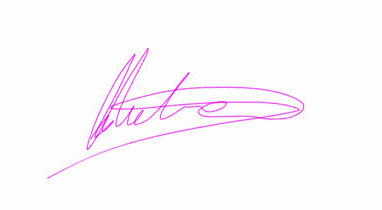
“Remember that self love is also revolutionary and world-changing. We cannot fight for others when we are fighting a war inside ourselves. Compassion is reflexive, a power that we first bestow on ourselves, and then give away through our actions — to people, to our planet. When we recognise that truth, that is when we let love become our legacy”
~Amanda Gorman.

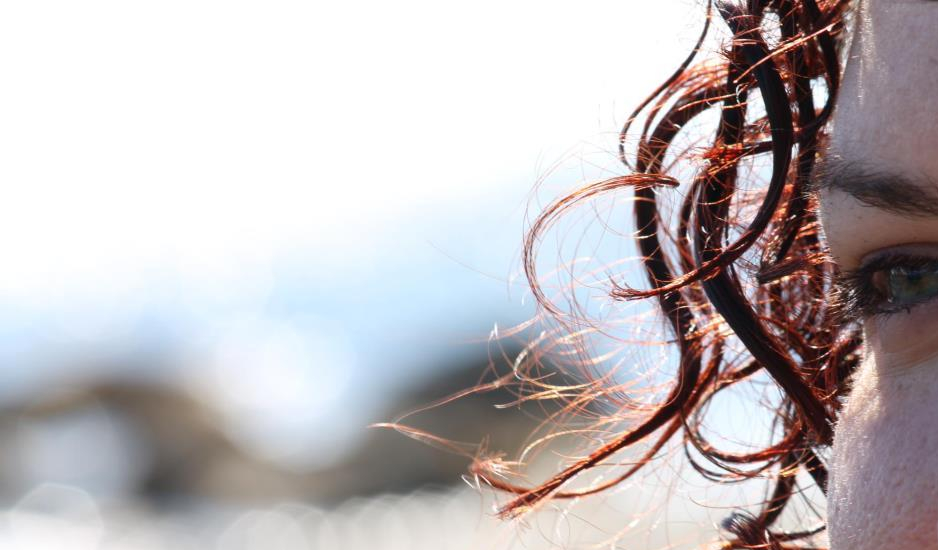

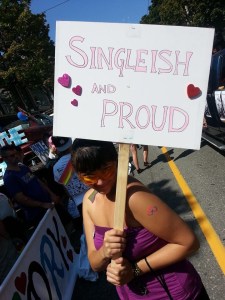


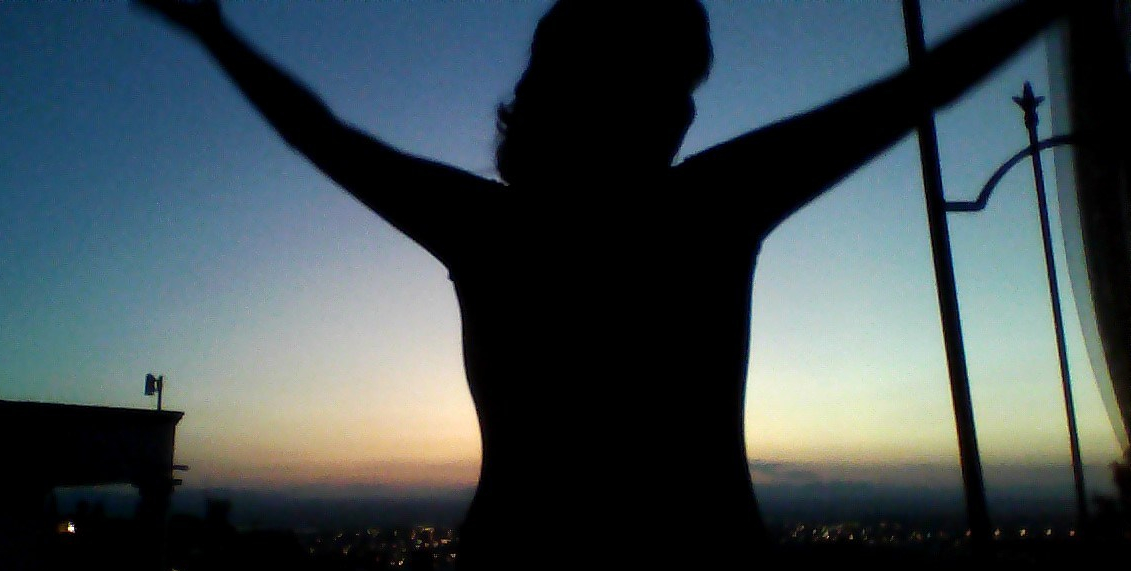 I’ve said yes to sex because I seek pleasure that will erase the pain. Because I want to prove I can be one of the cool cats at the sex party. Because I don’t want anyone to know the internal labarynth I traverse to feel intimacy.
I’ve said yes to sex because I seek pleasure that will erase the pain. Because I want to prove I can be one of the cool cats at the sex party. Because I don’t want anyone to know the internal labarynth I traverse to feel intimacy.
 When love flows, it flows,
When love flows, it flows,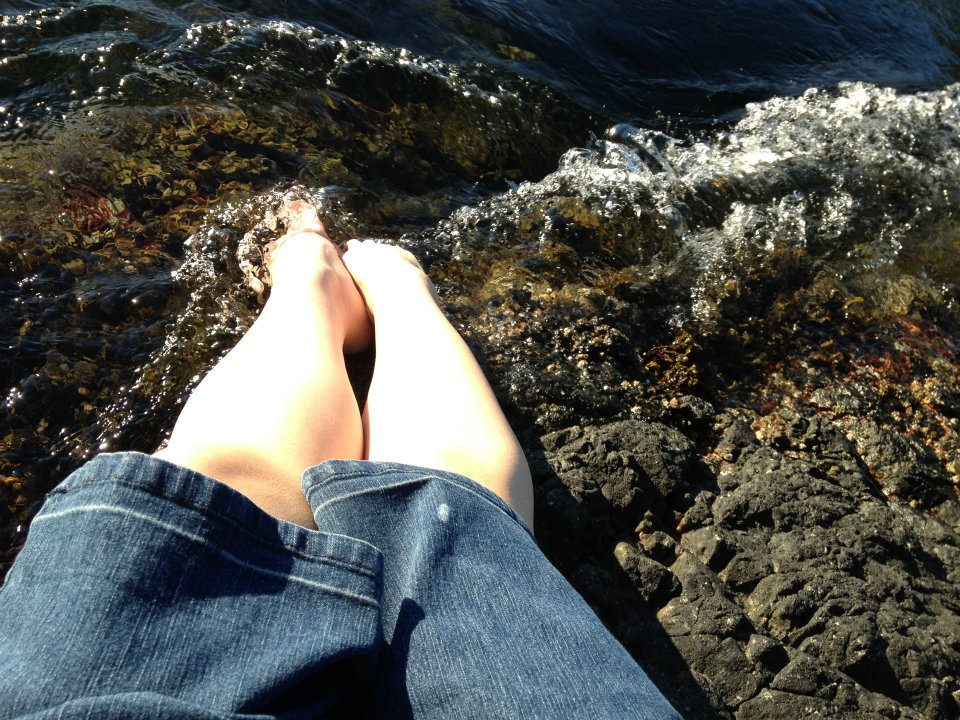


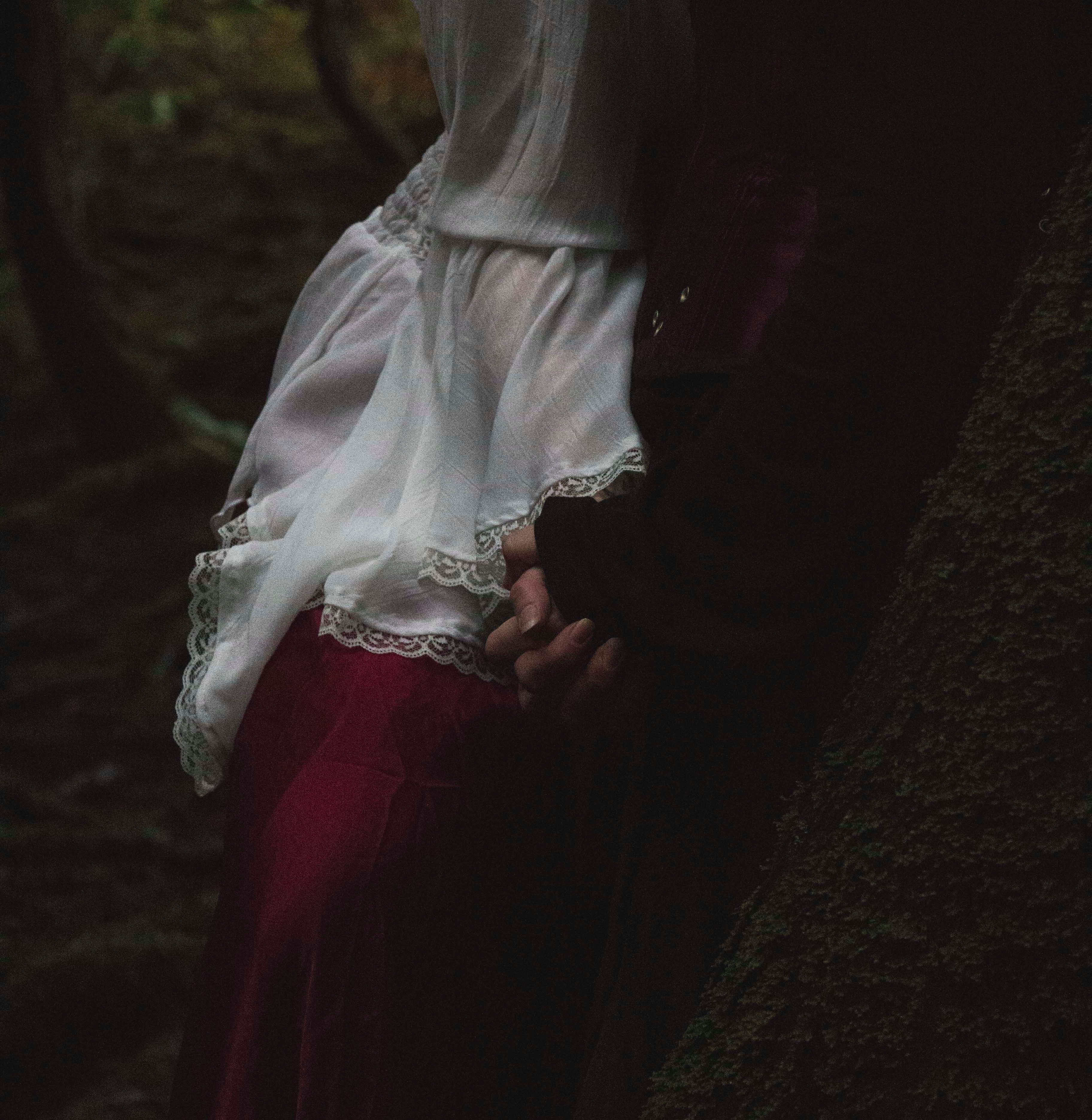
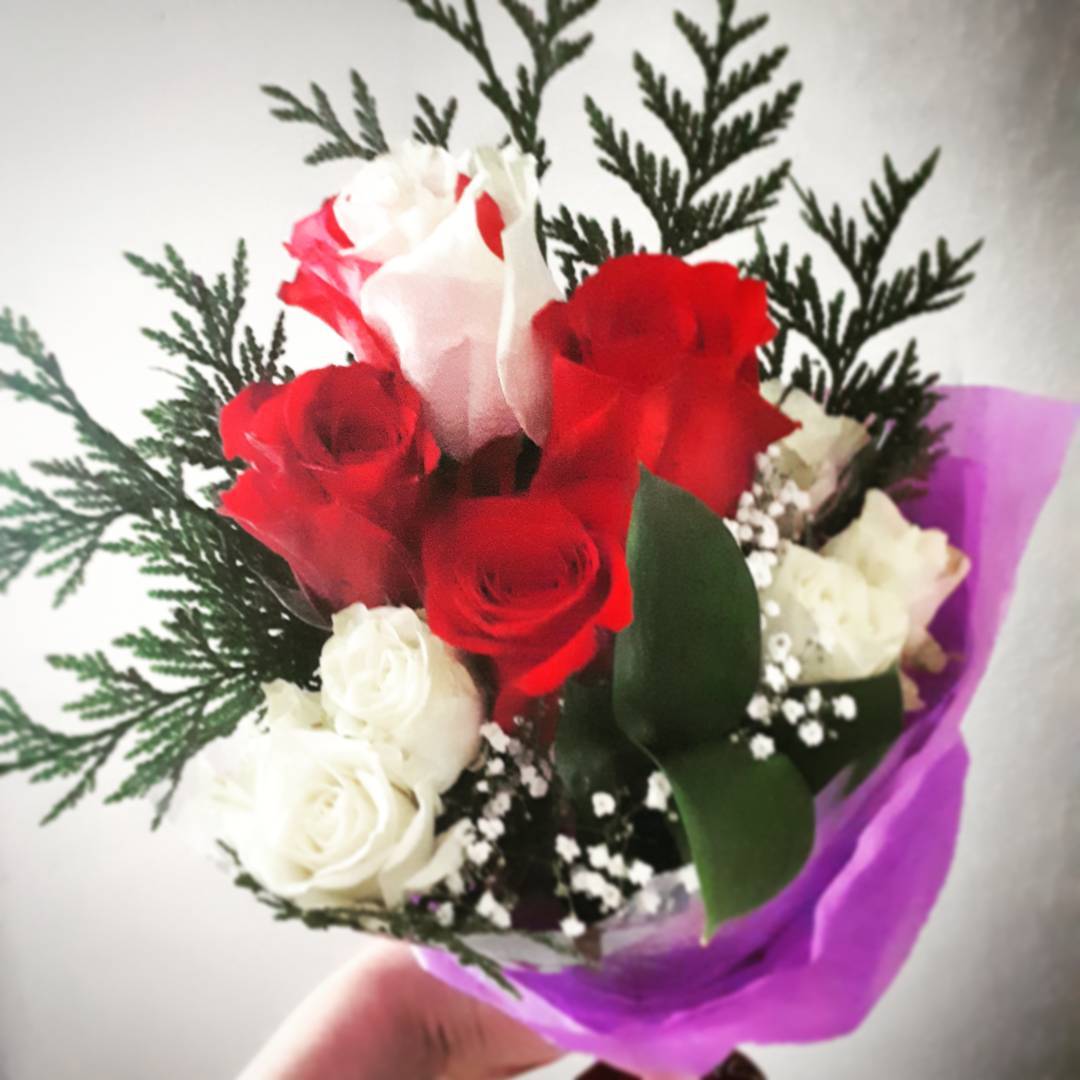
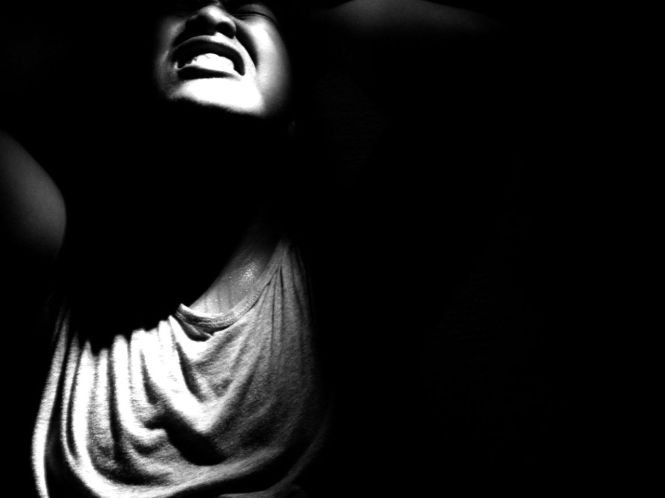
 And then a huge wave of sorrow rose up in me. This grief was about more than just my experience with him. I thought of all the other men who I’ve defended, supported, spoke in testimony to, and more. Men who I have been far more intimate with. Men who I have dated for years. Polyamorous men who I saw as safe because they had other long term partners (so they must be good ones, right?). I thought of the lover many years ago who I watched assault and rape a friend of mine, who threatened me into silence— and who I still defended socially, calling him a trustworthy and safe person (what was I thinking?). I think of the partner whose praises I sang even while they were minimizing and gaslighting their other partners in a toxic and traumatizing pattern of relationships. I think of the boyfriend who I thought was one of the best partners I had, who inspired me and with whom I felt like I was coming ‘home’, even while he dismissed my sexual trauma and insisted I ‘get over’ my conflict with the person who had abused and bullied me so we could all be at a party together, harmoniously. And so many many more.
And then a huge wave of sorrow rose up in me. This grief was about more than just my experience with him. I thought of all the other men who I’ve defended, supported, spoke in testimony to, and more. Men who I have been far more intimate with. Men who I have dated for years. Polyamorous men who I saw as safe because they had other long term partners (so they must be good ones, right?). I thought of the lover many years ago who I watched assault and rape a friend of mine, who threatened me into silence— and who I still defended socially, calling him a trustworthy and safe person (what was I thinking?). I think of the partner whose praises I sang even while they were minimizing and gaslighting their other partners in a toxic and traumatizing pattern of relationships. I think of the boyfriend who I thought was one of the best partners I had, who inspired me and with whom I felt like I was coming ‘home’, even while he dismissed my sexual trauma and insisted I ‘get over’ my conflict with the person who had abused and bullied me so we could all be at a party together, harmoniously. And so many many more.
 Muktananda was a controversial figure, who had a profound affect on many lives, my own included. My mother met him in the 1970s and became his student. He was an Indian Guru, a teacher of yoga philosophy and spirituality, who toured the world with an entourage of swamis and lay-teachers, establishing ashrams and meditation centers wherever they went. It was at one of these ashrams that my parents were married, and where I had many of my formative spiritual experiences as a youngster and teen. It was at another of these ashrams that I met my future ex-husband. Muktananda— or Baba, as he was affectionately called— and his teachings, have been a huge influence on my life.
Muktananda was a controversial figure, who had a profound affect on many lives, my own included. My mother met him in the 1970s and became his student. He was an Indian Guru, a teacher of yoga philosophy and spirituality, who toured the world with an entourage of swamis and lay-teachers, establishing ashrams and meditation centers wherever they went. It was at one of these ashrams that my parents were married, and where I had many of my formative spiritual experiences as a youngster and teen. It was at another of these ashrams that I met my future ex-husband. Muktananda— or Baba, as he was affectionately called— and his teachings, have been a huge influence on my life. As a relationship coach, so often I see people caught in dynamics where they feel trapped or limited as a result of surrendering their self relationship over to the partnership in their lives. A lot of the work I do is centered around supporting my clients to reconnect with their own needs, wants, and desires, and empowering them to find the blissful freedom that is possible when they can prioritise themselves as an act of self love, so that when they go to care for others, they do so with a full cup.
As a relationship coach, so often I see people caught in dynamics where they feel trapped or limited as a result of surrendering their self relationship over to the partnership in their lives. A lot of the work I do is centered around supporting my clients to reconnect with their own needs, wants, and desires, and empowering them to find the blissful freedom that is possible when they can prioritise themselves as an act of self love, so that when they go to care for others, they do so with a full cup.
 Tarnished by many Magpies, I can bite my tongue no longer. This is a letter for the corvid creatures who swoop in on the polyamory novices. I hear you justify yourself magnanimously with stories of consensuality, and sit on your pedestals of knowledge preening- but you do not see the harm you do. Meanwhile, as a coach, I see it again and again. And I want you to understand. Because I have been on both sides of this story. And no one deserves to be tarnished by ignorance to what’s happening beneath the surface.
Tarnished by many Magpies, I can bite my tongue no longer. This is a letter for the corvid creatures who swoop in on the polyamory novices. I hear you justify yourself magnanimously with stories of consensuality, and sit on your pedestals of knowledge preening- but you do not see the harm you do. Meanwhile, as a coach, I see it again and again. And I want you to understand. Because I have been on both sides of this story. And no one deserves to be tarnished by ignorance to what’s happening beneath the surface. You think you’re doing her a favor, introducing her to the flirtatious fabulousness that is your life, but you are oblivious to the trauma lying under the surface. You see only the face she wants you to see, and you remain ignorant to the fear underneath that mask.
You think you’re doing her a favor, introducing her to the flirtatious fabulousness that is your life, but you are oblivious to the trauma lying under the surface. You see only the face she wants you to see, and you remain ignorant to the fear underneath that mask.
 When’s the last time you had sex?
When’s the last time you had sex?
 I won’t ever be able to talk publicly about some parts of my personal journey, and the challenges therein. Suffice to say that those specific things (servant leadership, consent culture, empowering individuals within community) reflect values core to who I am, but are also values which have been called into question in the past. To hear that positive reflection from someone I so greatly admire, and to see the resonance with others around the room- that’s a moment I’d like to dip into again and again and again.
I won’t ever be able to talk publicly about some parts of my personal journey, and the challenges therein. Suffice to say that those specific things (servant leadership, consent culture, empowering individuals within community) reflect values core to who I am, but are also values which have been called into question in the past. To hear that positive reflection from someone I so greatly admire, and to see the resonance with others around the room- that’s a moment I’d like to dip into again and again and again.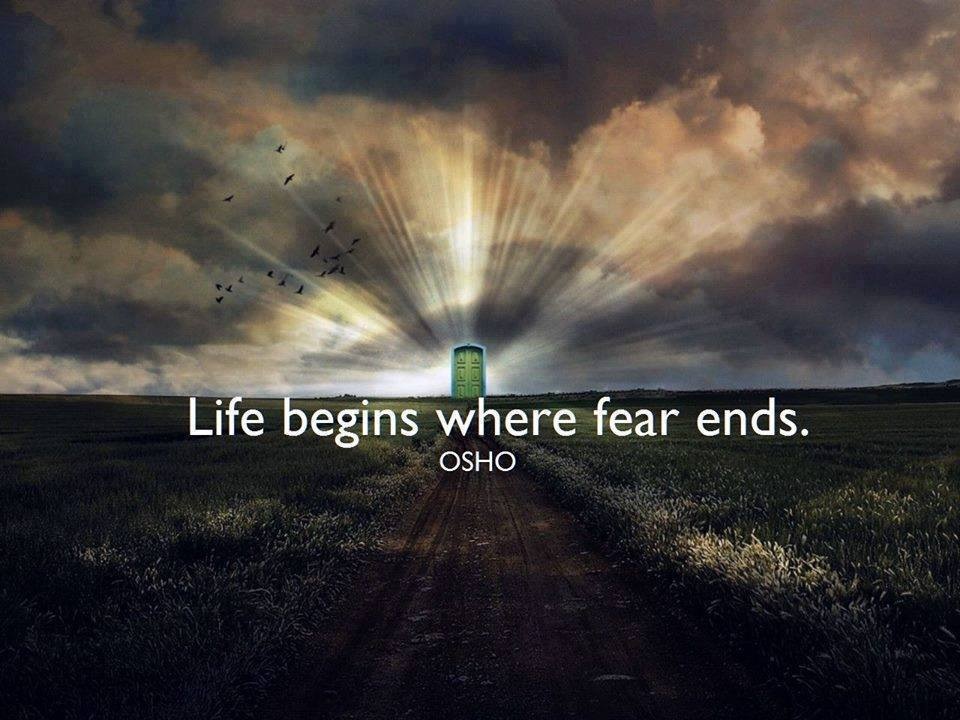

 A big part of my journey in Solo Polyamory has been in seeking out that community and looking for ways to meet that need outside of an escalator relationship. The plural nature of polyamory lends itself well to this- at first glance, at least- with all the interconnected relations and interweaving of people. I, like many, have found myself at times falling into that old trope of “You’re poly, I’m poly, we have so much in common!” We don’t always choose the best family.
A big part of my journey in Solo Polyamory has been in seeking out that community and looking for ways to meet that need outside of an escalator relationship. The plural nature of polyamory lends itself well to this- at first glance, at least- with all the interconnected relations and interweaving of people. I, like many, have found myself at times falling into that old trope of “You’re poly, I’m poly, we have so much in common!” We don’t always choose the best family. This year so far has seen me diving into deep introspection around this. The cocooning winter hibernation has provided the perfect space for grounding into a deeper understanding of my self and what I need. I am someone who hasn’t experienced much security in my adult life, and many relationships- both romantic and social- have been ones that I’ve engaged in in part as a survival strategy, to build networks wherein I might find a safety net. And when I’ve found a dynamic that feels good, I’ve leaned in heavily, perhaps too much at times, in search of that security I crave.
This year so far has seen me diving into deep introspection around this. The cocooning winter hibernation has provided the perfect space for grounding into a deeper understanding of my self and what I need. I am someone who hasn’t experienced much security in my adult life, and many relationships- both romantic and social- have been ones that I’ve engaged in in part as a survival strategy, to build networks wherein I might find a safety net. And when I’ve found a dynamic that feels good, I’ve leaned in heavily, perhaps too much at times, in search of that security I crave.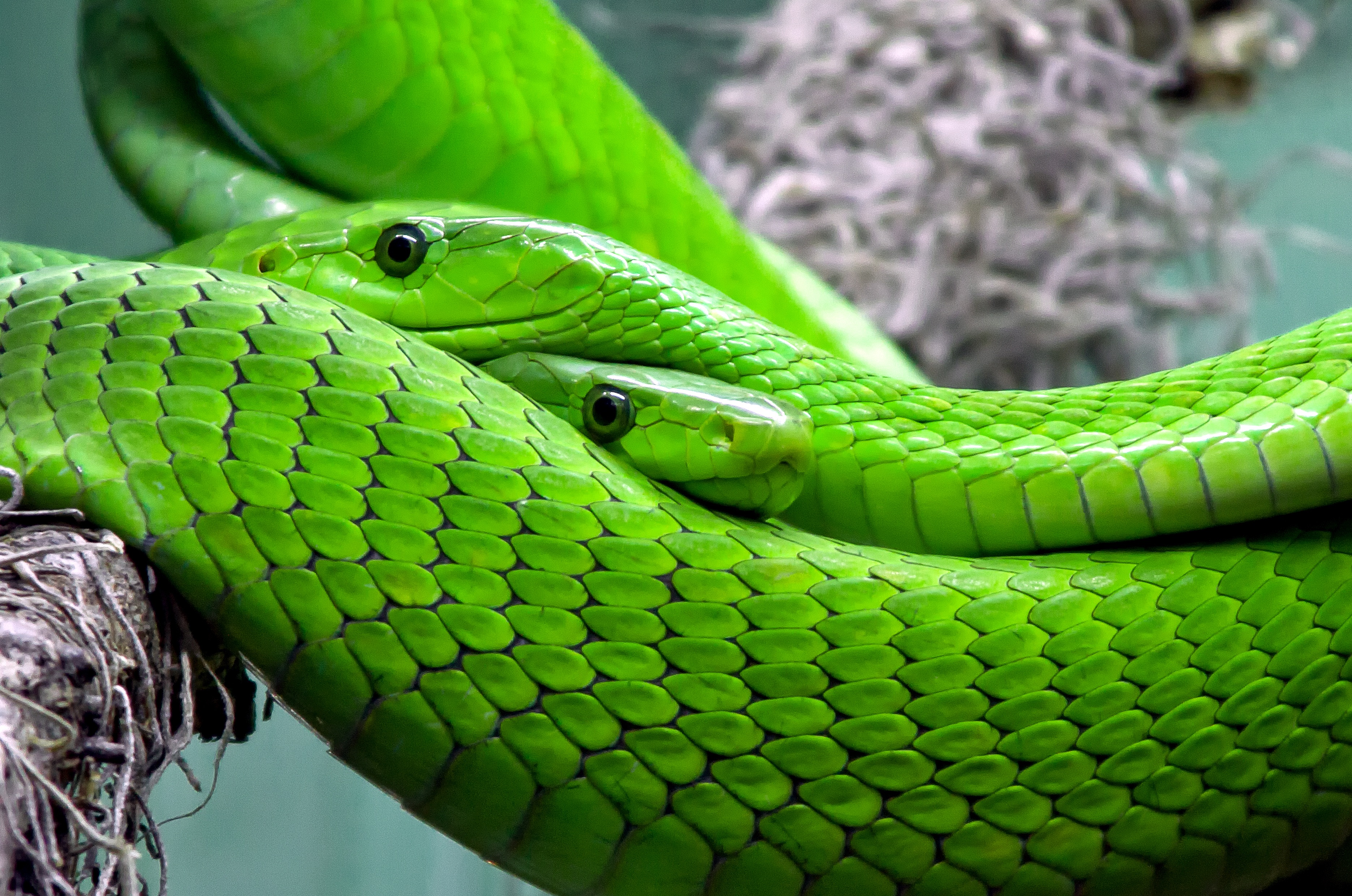 Signs this relationship dynamic might currently be Draining for me:
Signs this relationship dynamic might currently be Draining for me:
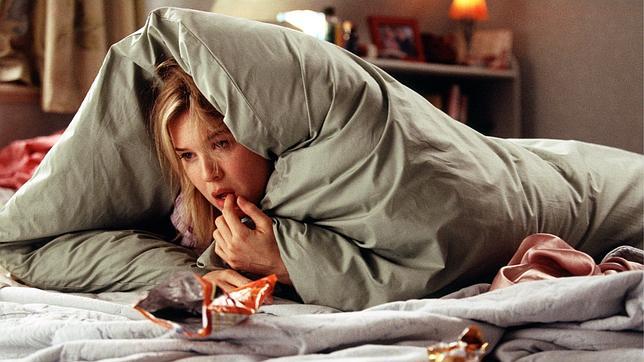
 As I watched Bridget progress through pregnancy, uncertain of who the father was, I saw the new paradigm begin to shine through. I saw a portrayal of two men in competition for a woman grow kinship instead of rivalry, and even express compersion in the midst of jealousy. I watched an exploration of the possibility of non-traditional family, and I smiled because Bridget beamed as she watched the two men become the closest of friends.
As I watched Bridget progress through pregnancy, uncertain of who the father was, I saw the new paradigm begin to shine through. I saw a portrayal of two men in competition for a woman grow kinship instead of rivalry, and even express compersion in the midst of jealousy. I watched an exploration of the possibility of non-traditional family, and I smiled because Bridget beamed as she watched the two men become the closest of friends.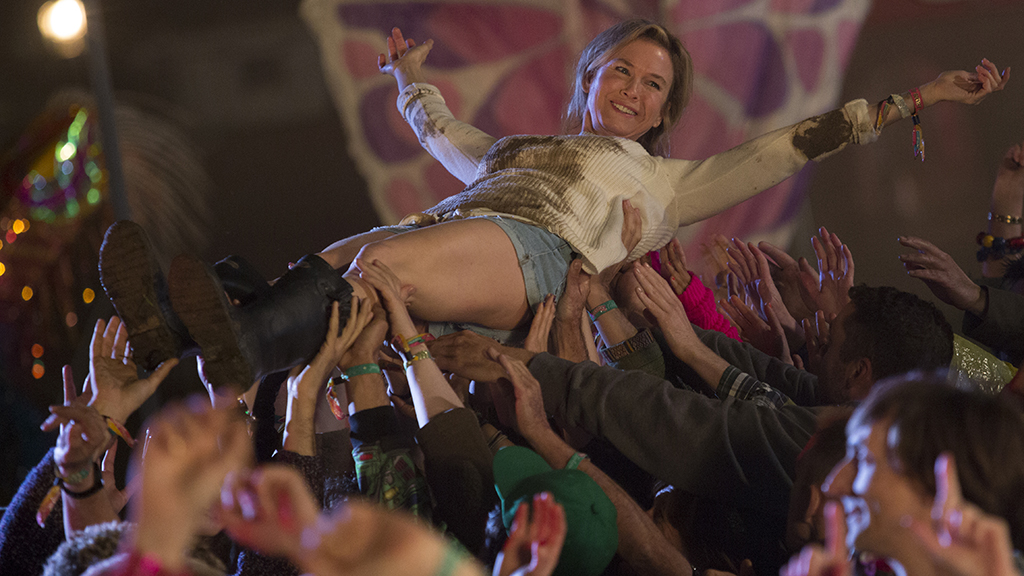
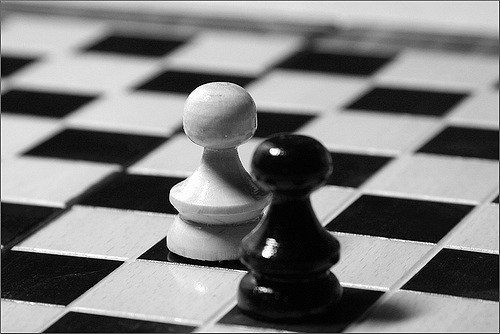 I tolerate the effect it has on me. I tolerate the terror that bubbles up when I try to express my sexuality with women, a fear that causes me to freeze from the inside out. I tolerate that second-guessing in my head every time someone gives me a compliment about who I am or what I do. I tolerate fear living inside of me — fear that the ones who gaslight me are right.
I tolerate the effect it has on me. I tolerate the terror that bubbles up when I try to express my sexuality with women, a fear that causes me to freeze from the inside out. I tolerate that second-guessing in my head every time someone gives me a compliment about who I am or what I do. I tolerate fear living inside of me — fear that the ones who gaslight me are right.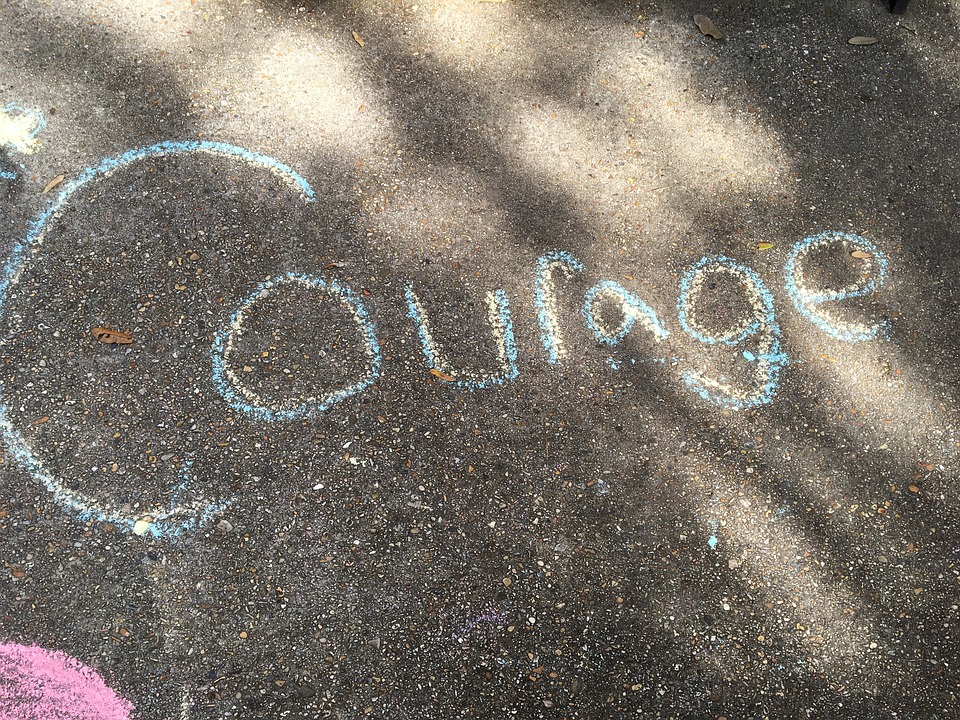 In gratitude, I work with therapists, bodyworkers, sexological workers, somatic healers, and more. I float. I begin to feel safer in my body, comfortable again in my own skin. The nightmares no longer wake me at night. I can relax in both solitude and company.
In gratitude, I work with therapists, bodyworkers, sexological workers, somatic healers, and more. I float. I begin to feel safer in my body, comfortable again in my own skin. The nightmares no longer wake me at night. I can relax in both solitude and company.
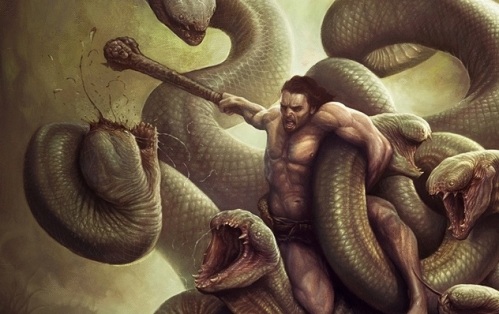
 I have this crucible, this road of trials that I traverse. Some time ago, something happened to me that was not okay- not for my body, nor my psyche. It haunted me, raged in my dreams, and drove me to build walls between myself and others. I’ve been ‘brave’ to process through this- and to do so privately and silently whilst elsewhere a different story is spun has been one of the most painful experiences of my life, an experience that has taken me to the precipice of a darkness and hopelessness in myself that I do not ever wish to see again. My hope is that by sharing something of what I have held silent, that perhaps I may find ease.
I have this crucible, this road of trials that I traverse. Some time ago, something happened to me that was not okay- not for my body, nor my psyche. It haunted me, raged in my dreams, and drove me to build walls between myself and others. I’ve been ‘brave’ to process through this- and to do so privately and silently whilst elsewhere a different story is spun has been one of the most painful experiences of my life, an experience that has taken me to the precipice of a darkness and hopelessness in myself that I do not ever wish to see again. My hope is that by sharing something of what I have held silent, that perhaps I may find ease. Even today, after months of processing through this, my body feels heavy and foreign to me as I write, and my hands shake and vibrate with emotion as I sob from this deep heartache. I have cocooned to find healing, to defeat this Hydra through my own self-work, and many times I have courageously emerged from that cocoon only to find that it has grown more venemous in my absence.
Even today, after months of processing through this, my body feels heavy and foreign to me as I write, and my hands shake and vibrate with emotion as I sob from this deep heartache. I have cocooned to find healing, to defeat this Hydra through my own self-work, and many times I have courageously emerged from that cocoon only to find that it has grown more venemous in my absence. My brave, brave heart is so tired and seeks rest, seeks peace. There are well-meaning, kind souls who wish to help, who wish to support healing, but with my own voice having been silent, they’ve had no means of knowing the hurt, the sorrow, the life-arresting and emotionally paralyzing trauma that I’ve been through.
My brave, brave heart is so tired and seeks rest, seeks peace. There are well-meaning, kind souls who wish to help, who wish to support healing, but with my own voice having been silent, they’ve had no means of knowing the hurt, the sorrow, the life-arresting and emotionally paralyzing trauma that I’ve been through.


 There are many things I miss about being ‘coupled’, many moments I wish I had a nesting or primary-like partner: when I want to check in about someone new I’m seeing, or need to talk about something I’ve experienced. There is absolutely a void there, one that I seek to fill through my friendships, and by gently inviting partners into that space as our relationships allow.
There are many things I miss about being ‘coupled’, many moments I wish I had a nesting or primary-like partner: when I want to check in about someone new I’m seeing, or need to talk about something I’ve experienced. There is absolutely a void there, one that I seek to fill through my friendships, and by gently inviting partners into that space as our relationships allow. A few months ago I started doing work with a coach, examining archetypal energies, looking at past traumas, approaching his work on an energetic and experiential level. When we were looking at my archetypes, one that stood out, was the Harlot
A few months ago I started doing work with a coach, examining archetypal energies, looking at past traumas, approaching his work on an energetic and experiential level. When we were looking at my archetypes, one that stood out, was the Harlot
 The desire to not have children, for me, is not just from my own miscarriages, but also arises when I see dear friends surrendering dreams to their children to make manifest for them, some two decades from now. While my desire to be unshackled by legal wedlock was born from seven years living in default monogamy and sinking into co-dependance within that, the commitment to stay unwed and without bearing children of my own has grown from a very real desire to focus my energy and time on other endeavours.
The desire to not have children, for me, is not just from my own miscarriages, but also arises when I see dear friends surrendering dreams to their children to make manifest for them, some two decades from now. While my desire to be unshackled by legal wedlock was born from seven years living in default monogamy and sinking into co-dependance within that, the commitment to stay unwed and without bearing children of my own has grown from a very real desire to focus my energy and time on other endeavours.